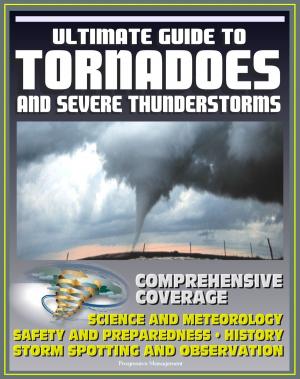Attribution in Influence: Relative Power and the Use of Attribution - Military Psychological Operations (PSYOP) and Deception, Case Studies of U.S. in World War II and Vietnam, and Russia in Crimea
Nonfiction, History, Military, Vietnam War, Asian, Strategy| Author: | Progressive Management | ISBN: | 9780463540756 |
| Publisher: | Progressive Management | Publication: | June 19, 2018 |
| Imprint: | Smashwords Edition | Language: | English |
| Author: | Progressive Management |
| ISBN: | 9780463540756 |
| Publisher: | Progressive Management |
| Publication: | June 19, 2018 |
| Imprint: | Smashwords Edition |
| Language: | English |
This important December 2017 report has been professionally converted for accurate flowing-text e-book format reproduction.
The types of attribution for influence activities span a spectrum that includes true attribution, non-attribution, concurring partner attribution, and false attribution. The U.S. Department of Defense sits in a unique position among U.S. agencies, as it must remain capable of conducting influence activities across that spectrum. This includes activities such as public affairs, military information support operations, and military deception. While U.S. military doctrine clearly defines and delineates the various types of attribution for influence activities and messages, notably absent is when and how attribution should be used. There is also little scholarly literature that specifically explores the issue of attribution. Despite this dearth of information, an analysis of historical cases can help identify the conditions best suited for the various types of attribution. This study explores those cases and identifies relative power as a potential variable to determine attribution. It tests the hypostudy that false and non-attribution methods are most effective when in a relatively weak position, and as operational success and relative power are achieved, influence activities with true attribution become more effective.
I. AN EXAMINATION OF ATTRIBUTION IN INFLUENCE ACTIVITIES * A. FRAMING THE PROBLEM * B. RESEARCH QUESTION * C. LITERATURE REVIEW AND RELATED WORK * D. HYPOTHESES * E. METHODOLOGY * F. TERMINOLOGY AND DEFINITIONS IN LITERATURE * G. STUDY TERMINOLOGY AND DEFINITIONS * H. RELATIVE POWER * I. STUDY SCOPE * II. U.S. PSYCHOLOGICAL WARFARE IN WORLD WAR II * A. BACKGROUND * 1. Office of the Coordinator of Information * 2. The OSS Morale Operations Branch * 3. The OWI Overseas Branch * 4. The U.S. Army's Psychological Warfare Division * B. RELATIVE POWER * C. INFLUENCE ACTIVITIES AND ATTRIBUTION * D. OUTCOMES * E. CONCLUSION * III. JUSPAO AND MACV-SOG IN VIETNAM * A. BACKGROUND * 1. First Indochina War * 2. Expanding Operations * 3. War of Ideas * B. RELATIVE POWER * C. INFLUENCE ACTIVITIES AND ATTRIBUTION * D. OUTCOMES * E. CONCLUSION * IV. RUSSIAN OPERATIONS IN CRIMEA * A. BACKGROUND * 1. Orange Revolution * 2. Ukraine Revolution * 3. Military Intervention * B. RELATIVE POWER * C. INFLUENCE ACTIVITIES AND ATTRIBUTION * D. OUTCOMES * E. CONCLUSION * V. FINDINGS AND IMPLICATIONS * A. HYPOSTUDY 1 * 1. World War II * 2. Vietnam, * 3. Crimea * B. HYPOSTUDY 2 * 1. World War II * 2. Vietnam * 3. Crimea * C. OVERALL ASSESSMENT * D. UNEXPECTED FINDINGS * E. THE WAY AHEAD AND FURTHER RESEARCH * F. CONCLUSION
This important December 2017 report has been professionally converted for accurate flowing-text e-book format reproduction.
The types of attribution for influence activities span a spectrum that includes true attribution, non-attribution, concurring partner attribution, and false attribution. The U.S. Department of Defense sits in a unique position among U.S. agencies, as it must remain capable of conducting influence activities across that spectrum. This includes activities such as public affairs, military information support operations, and military deception. While U.S. military doctrine clearly defines and delineates the various types of attribution for influence activities and messages, notably absent is when and how attribution should be used. There is also little scholarly literature that specifically explores the issue of attribution. Despite this dearth of information, an analysis of historical cases can help identify the conditions best suited for the various types of attribution. This study explores those cases and identifies relative power as a potential variable to determine attribution. It tests the hypostudy that false and non-attribution methods are most effective when in a relatively weak position, and as operational success and relative power are achieved, influence activities with true attribution become more effective.
I. AN EXAMINATION OF ATTRIBUTION IN INFLUENCE ACTIVITIES * A. FRAMING THE PROBLEM * B. RESEARCH QUESTION * C. LITERATURE REVIEW AND RELATED WORK * D. HYPOTHESES * E. METHODOLOGY * F. TERMINOLOGY AND DEFINITIONS IN LITERATURE * G. STUDY TERMINOLOGY AND DEFINITIONS * H. RELATIVE POWER * I. STUDY SCOPE * II. U.S. PSYCHOLOGICAL WARFARE IN WORLD WAR II * A. BACKGROUND * 1. Office of the Coordinator of Information * 2. The OSS Morale Operations Branch * 3. The OWI Overseas Branch * 4. The U.S. Army's Psychological Warfare Division * B. RELATIVE POWER * C. INFLUENCE ACTIVITIES AND ATTRIBUTION * D. OUTCOMES * E. CONCLUSION * III. JUSPAO AND MACV-SOG IN VIETNAM * A. BACKGROUND * 1. First Indochina War * 2. Expanding Operations * 3. War of Ideas * B. RELATIVE POWER * C. INFLUENCE ACTIVITIES AND ATTRIBUTION * D. OUTCOMES * E. CONCLUSION * IV. RUSSIAN OPERATIONS IN CRIMEA * A. BACKGROUND * 1. Orange Revolution * 2. Ukraine Revolution * 3. Military Intervention * B. RELATIVE POWER * C. INFLUENCE ACTIVITIES AND ATTRIBUTION * D. OUTCOMES * E. CONCLUSION * V. FINDINGS AND IMPLICATIONS * A. HYPOSTUDY 1 * 1. World War II * 2. Vietnam, * 3. Crimea * B. HYPOSTUDY 2 * 1. World War II * 2. Vietnam * 3. Crimea * C. OVERALL ASSESSMENT * D. UNEXPECTED FINDINGS * E. THE WAY AHEAD AND FURTHER RESEARCH * F. CONCLUSION















